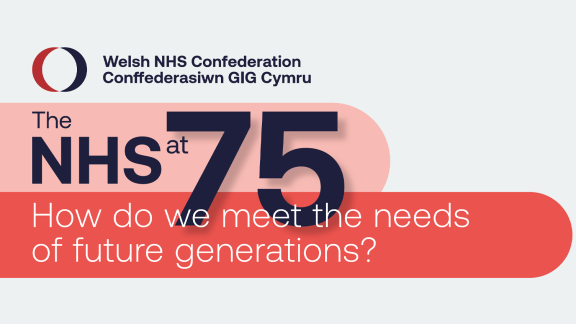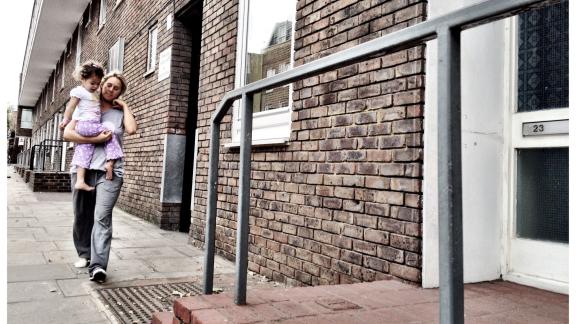Welsh NHS Confederation call for national conversation on future of nation’s health and wellbeing endorsed by 32 health and care organisations

32 organisations have come together to support the Welsh NHS Confederation’s call for a cross-government national conversation on the future of health and wellbeing.
On the day of the Welsh NHS Confederation annual conference, over 30 organisations from a range of sectors in Wales are supporting calls for a cross-government and cross-sector public conversation on the future of health and care services and the population’s health and wellbeing.
This group of organisations believe it is for all government departments, ministers and sectors to ask what they can do to support the health and wellbeing of people now and in the future.
The health and wellbeing of the population is everyone’s business, so all sectors and government departments must work together to co-produce services and engage with the public as part of this vital conversation.
The changing make-up of our population – including an ageing population with increased frailty and long-term conditions - brings with it immense challenges for all sectors and to individuals themselves. We must take decisive action now to co-produce and redesign services to ensure they better meet the changing needs of the population, so that all public and third sector services remain sustainable in the future.
As a nation, Wales faces a significant number of population health challenges that reduce life expectancy and widen inequalities. Improving population health and wellbeing requires an integrated approach across all public services and all sectors. Collectively we need to create the economic, social and natural environment in Wales to support good health and wellbeing throughout the life-course.
The most recent National Survey for Wales results show that 13 per cent of adults currently smoke, 17 per cent drink more alcohol than the recommended guidelines, only 37 per cent reported a healthy weight and only 55 per cent of people reported being active for at least 150 minutes in the previous week. Unless we address these issues, demand on health and care services will continue to grow unsustainably.
According to analysis by Public Health Wales, more than 200,000 people in Wales are known to have a form of diabetes, approximately 7 per cent of the population. £82.5 million was spent on drugs used to manage diabetes in 2021/2 and 11 per cent of inpatient admissions involved patients with diabetes. If the prevalence of diabetes remains at the current level, 218,000 people in Wales would be living with diabetes by 2035/36. If current trends are maintained, this would be 260,000. A greater focus on lifestyle and societal factors such as education on healthy diets, active travel, access to leisure centres and green spaces could help to reduce the prevalence of diabetes and in turn, reduce the risk of other health conditions.
It is not an option to continue on the current trajectory. We need an open and honest conversation with the public about what the future health and care service looks like and the part we must all play in our own health and wellbeing. This must be centred on adequately and sustainably funded public services, taking care and prevention to people and their communities and empowering and enabling people to take charge of their own health and wider wellbeing. It must be based on an ambitious and honest partnership between the government, all sectors and the public.
Darren Hughes, director of the Welsh NHS Confederation, said:
“Access to healthcare only accounts for around 10 per cent of a population’s health, with the rest shaped by socio-economic factors. In such economically challenging times, we must ensure we do not cut spending on preventative measures, which would inevitably lead to a greater cost down the line. Fair work, housing, transport, access to green spaces, leisure and the arts help us stay well. Everything affects our health and wellbeing.
“This is not the NHS trying to run from its responsibilities – NHS leaders know there is much more to be done to improve services. This is about acknowledging that this is not just a conversation about the NHS and health, but a conversation about what every individual, organisation, sector and government department can do to improve our chances of living healthier lives. Change must happen, it’s simply not an option to stay as we are – we need to think about the future now.”
Chair of the Arts Council of Wales Maggie Russell said:
“We know that health doesn’t hold all the levers when it comes to tackling health inequalities and recognise that all public bodies, including the arts and culture, can have a significant role in supporting people’s health and wellbeing. The pandemic revealed just how crucial the arts are to people’s health and wellbeing in a time of crisis and as Social Prescribing looks to connect people with local support and take pressure off the NHS, the arts sector in Wales stands ready to ensure that our community cultural assets are a core part of the offer and wider prevention agenda. The Welsh NHS Confederation’s call for a collaborative, integrated, person-centred approach with co-production, climate justice and partnership at its heart has strong synergy with the work we are advancing in the arts in Wales.”
Dr Hilary Williams, RCP Vice President for Wales said:
“The NHS alone cannot tackle poverty. It cannot take responsibility for improving housing, air quality, transport links, education or the economy. That's why the RCP is calling for a cross-government plan to tackle inequalities in Wales, one that brings together commitments from every Welsh minister and ensures we're all working towards a common goal: to improve the health, wealth and wellbeing of everyone in Wales.”
Jenn Huygen, Head of Policy & Strategic Partners, Community Leisure UK, said:
“We welcome today’s call for a national conversation on the future of health and wellbeing in Wales.
"As Charitable Trusts with facilities and services located in the heart of communities our members are in a prime position to support the NHS and health care professionals via their prehabilitation, rehabilitation and preventative services.
"A national conversation regarding the creation of more joined up healthcare between the NHS and supportive health bodies, such as our members, will clearly begin the journey towards a more collaborative and efficient approach to the delivery of health programmes; ultimately creating better health outcomes for communities and individuals.”
RCGP Cymru Wales Chair Dr Rowena Christmas, said:
“It can be difficult to talk about reforming a service we hold so dear, but we must do so to ensure we build on its success and rectify shortcomings. General practice is under immense pressure, but it must be part of the solution. That is why RCGP Cymru Wales is backing the Welsh NHS Confederation’s call for a National Conversation on how we can improve health, care and wellness in Wales.”
Dr Catrin Edwards, Head of External Affairs, Carers Trust Wales said:
"If our health and care system is to be sustainable, it’s vital that all stakeholders are involved in coproducing how it develops to meet the challenges of today and into the future. A national conversation between the vital cogs of the existing system – our paid workforce and the unpaid carers who contribute essential care – and the wider public is an essential first step in this.
"The NHS alone cannot tackle poverty. It cannot take responsibility for improving housing, air quality, transport links, education or the economy. That's why the RCP is calling for a cross-government plan to tackle inequalities in Wales, one that brings together commitments from every Welsh minister and ensures we're all working towards a common goal: to improve the health, wealth and wellbeing of everyone in Wales."
Tenovus Cancer Care Chief Executive, Judi Rhys MBE, said:
“Currently, around 20,000 people are diagnosed with cancer in Wales every year. It’s estimated this number will rise to almost 25,000 by 2040. Cancer services are struggling to cope now, let alone with these additional numbers entering the system. We welcome the NHS Confederation’s ambitions in leading a national conversation around how we create an NHS Wales which is fit for the future. The time has come to have an open and transparent dialogue about how cancer can be prevented in the first place, as well as supporting people to understand their service may look different in the future. Circumstances are changing and we cannot stand still.”
Organisations endorsing the call for a national conversation:
- Community Leisure UK
- Marie Curie
- Stroke Association
- British Society for Heart Failure
- Royal College Psychiatrists in Wales
- Motor Neurone Disease Association
- Independent Healthcare Providers Network
- Tenovus Cancer Care’s
- Royal College Speech and Language
- Royal College of General Practitioners
- The Association of the British Pharmaceutical Industry
- Welsh Sports Association
- Macmillan
- Royal College of Physicians
- Royal Pharmaceutical Society, Wales
- Asthma + Lung UK Cymru
- Age Connects Wales
- Fertility Network UK Wales
- Age Cymru
- Children in Wales
- Care & Repair Cymru
- WAWHN (Wales Arts Health & Wellbeing Network)
- FTWW: Fair Treatment for the Women of Wales
- Community Housing Cymru
- Carers Trust Wales
- MS Society, Wales
- Learning Disability Wales
- British Dietetic Association (BDA)
- Parkinson’s UK Wales
- Mencap
- Arts Council of Wales
- The British Psychological Society
About us
We are the membership organisation that brings together, supports and speaks for the whole healthcare system in England, Wales and Northern Ireland. The members we represent employ 1.5 million staff, care for more than 1 million patients a day and control £150 billion of public expenditure. We promote collaboration and partnership working as the key to improving population health, delivering high-quality care and reducing health inequalities.


